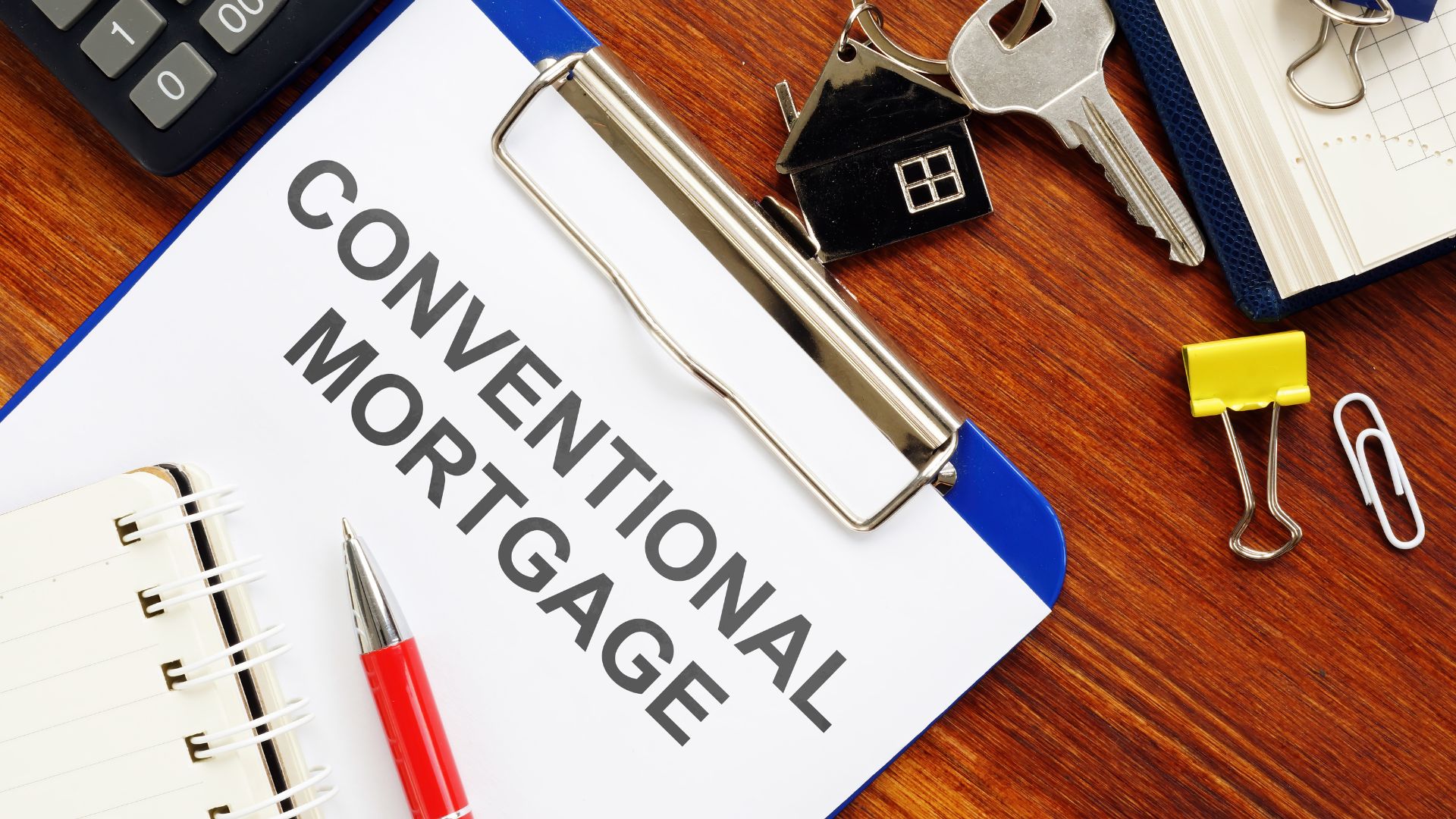If you’re thinking about buying a house, chances are you’ll need to get a mortgage loan to help pay for it. As you begin your search, you’ll realize that there are various types of loans available to you.
Given the wide array of options, deciding on the most suitable loan can be challenging. However, for many borrowers, a conventional loan is often the best option.
Buying a home is an important milestone and major accomplishment for most people. We want to make sure you understand your options for a home loan.
In this guide, we’ll delve into the world of conventional mortgages. More specifically, what is a conventional loan, how does it work, what are the eligibility requirements, and how does it compare to other mortgage options?
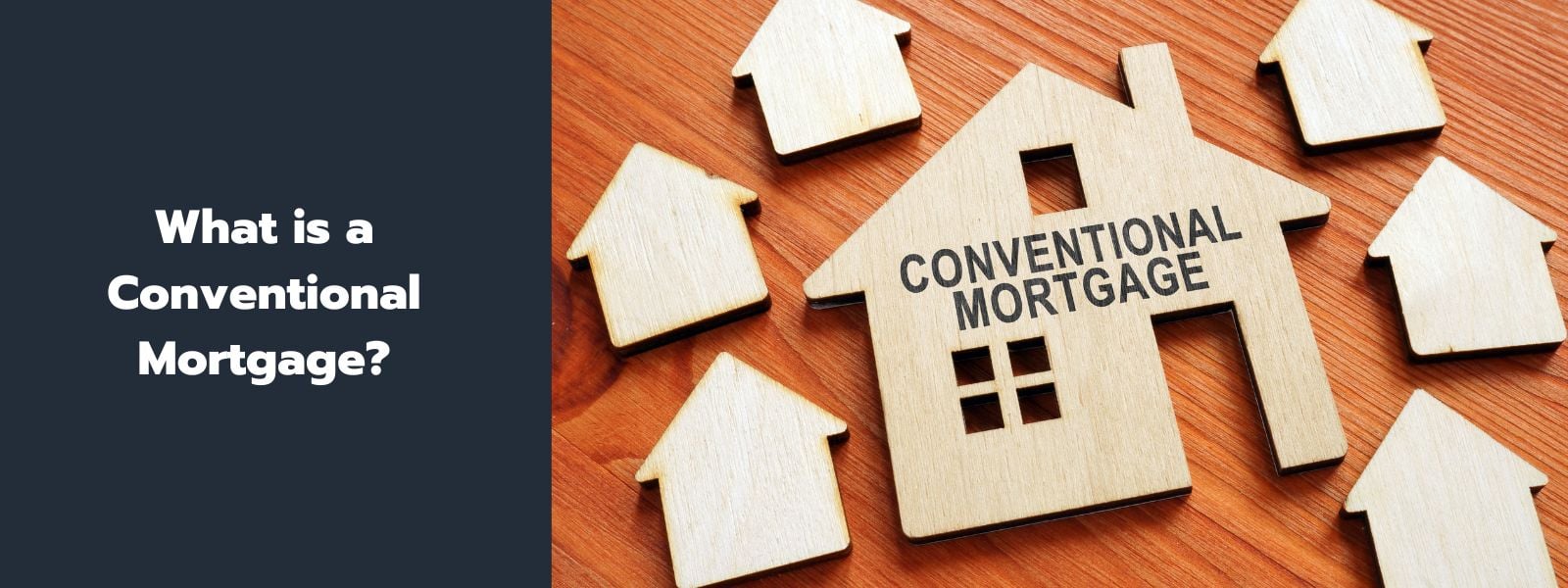
What is a Conventional Mortgage?
A conventional loan is a type of mortgage that is not supported by a government agency (FHA, VA, USDA). Conventional mortgages usually meet the down payment and income requirements set by Fannie Mae and Freddie Mac, and they also adhere to the loan limits established by the Federal Housing Finance Administration (FHFA).
To be eligible for a conventional loan, you generally need a credit score of at least 620. However, having a score above 740 will improve your chances of securing the best interest rate.
Depending on your financial situation and the amount you wish to borrow, it may be possible to make a down payment as low as 3% with a conventional loan. Nevertheless, keep in mind that opting for a higher down payment could result in a lower interest rate.
The Consumer Financial Protection Bureau (CFPB) provides the following definition:
“A conventional loan is any mortgage loan that is not insured or guaranteed by the government (such as under Federal Housing Administration, Department of Veterans Affairs, or Department of Agriculture loan programs). Conventional loans can be conforming or non-conforming.”
Types of Conventional Mortgages
There are different types of conventional mortgages, and the terms used to refer to them can be confusing. Here are the most common types:
- Conforming Loans: These loans have a balance under the “conforming” loan limit for the county. In 2024, the conforming loan limit for one-unit properties is $766,550 in most of the U.S. In higher-cost areas, the limit is $1,149,825.
- Jumbo Loans: Also commonly known as “Non-Conforming” loans, jumbo loans allow you to borrow more than the maximum limit for conforming loans. However, they usually require a higher credit score, a lower debt-to-income (DTI) ratio, and a larger down payment.
- Portfolio Loans: A portfolio loan is a conventional loan that a lender keeps in its own portfolio instead of selling it on the secondary market.
- Subprime Loans: If you don’t meet the requirements for a conforming loan (DTI below 50% and a credit score of 620 or higher), you might qualify for a subprime mortgage loan.
- Amortized Conventional Loans: These loans are fully amortized, meaning that homebuyers have a consistent monthly payment from the beginning to the end of the loan repayment period.
- Adjustable-Rate Loans: With an adjustable-rate mortgage, you’ll have a fixed interest rate for a certain period, usually three to ten years. After that, your interest rate can change from year to year.
What are the Requirements of Conventional Mortgages?
Qualifying for a traditional loan typically requires more effort compared to an FHA mortgage or another loan guaranteed by the government. These conventional loans do not come with any government guarantee to safeguard the lenders against possible losses, which is why lenders perceive them as riskier.
Consequently, lenders tend to be more selective about the individuals they choose to lend to. As a result, the criteria and mortgage qualification requirements for a conventional loan are usually more stringent and strict.
Below are the typical requirements for conventional home loans:
- Minimum Down Payment
-
-
- 3% with PMI
- 20% without PMI
-
- Mortgage Insurance
-
-
- No required upfront fees
- PMI only required when down payment is less than 20%
- Automatically canceled when LTV reaches 78%
-
- Minimum Credit Score
-
-
- At least 620
-
- Debt-to-Income Ratio (DTI)
-
-
- 43% or less
-
- Property Type
-
- Primary residence
- Investment property
- Second home
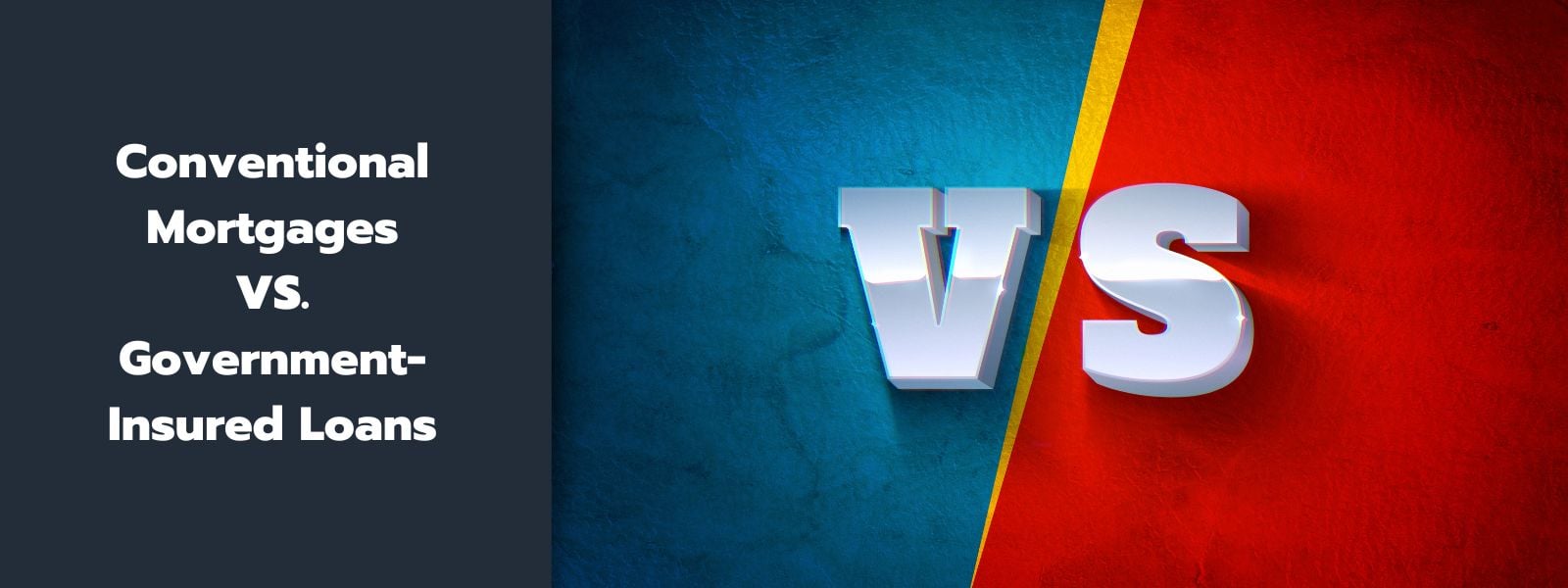
Conventional Mortgages vs. Government-Insured Loans
Conventional mortgages are just one of the four main types of mortgage loans. In addition to a conventional home loan, you can also choose an FHA loan, a USDA loan, or a VA loan.
Conventional Mortgages vs. FHA Loans
Conventional loans have stricter credit requirements compared to FHA loans. FHA loans, backed by the Federal Housing Administration (FHA), enable approval with a credit score as low as 500, given a minimum down payment of 10%.
For credit scores above 580 (which is commonly required by many lenders), the minimum down payment can be as low as 3.5%. On the other hand, conventional loans permit a slightly smaller down payment of 3%, but you need a credit score of at least 620 to qualify.
When deciding between a conventional loan and an FHA loan, it’s important to consider the cost of mortgage insurance. If you make a down payment on an FHA loan that is less than 10%, you’ll be required to pay a mortgage insurance premium throughout the loan term, regardless of your equity.
However, with a down payment of 10% or more on a conventional loan, you won’t have to pay private mortgage insurance forever. In such cases, the mortgage insurance premiums will be cancelled after 11 years.
Conventional Mortgages vs. VA Loans
While conventional loans are open to anyone who meets the requirements, VA loans provided by the Department of Veterans Affairs (VA) are exclusive benefits for veterans, active-duty servicemembers, and their surviving spouses.
The requirements for VA loans are similar to those for conventional loans, but VA loans come with several excellent benefits.
To start, VA loans do not require a down payment. Additionally, there is no need to pay mortgage insurance with VA loans.
If you are considering a VA loan instead of a conventional loan, here are a few factors to keep in mind:
- Using a VA loan to purchase a second home is not permitted. The Department of Veterans Affairs stipulates that VA loan holders must occupy the home they purchase with a VA loan. This means that second homes and vacation homes are not eligible for VA loans.
- You will need to pay a funding fee. The purpose of this fee is to offset the cost to taxpayers associated with providing VA loans. Some groups are exempt from paying the funding fee. The fee amount ranges from 1.25% to 3.3% of the loan amount and varies based on factors such as your down payment, whether you are buying a home or refinancing, and the number of times you have used your VA loan benefit.
Conventional Mortgages vs. USDA Loans
While conventional loans are available in all areas of the country, United States Department of Agriculture (USDA) loans can only be used to purchase properties in qualifying rural areas. People eligible for a USDA loan may find it to be a very affordable option compared to other loan choices.
For a conventional loan, there is no maximum income requirement. However, USDA loans have income limits that vary depending on the city and state where the home is being purchased. When evaluating your eligibility for a USDA loan, the lender will consider the total household income, not just the income of those listed on the loan.
Borrowers of USDA loans are not required to pay private mortgage insurance (PMI), but they do need to pay a guarantee fee, which is similar to PMI. If you choose to pay the guarantee fee upfront, it will be 1% of the total loan amount. Alternatively, you can include the guarantee fee as part of your monthly payment. Generally, the guarantee fee is more affordable than PMI.
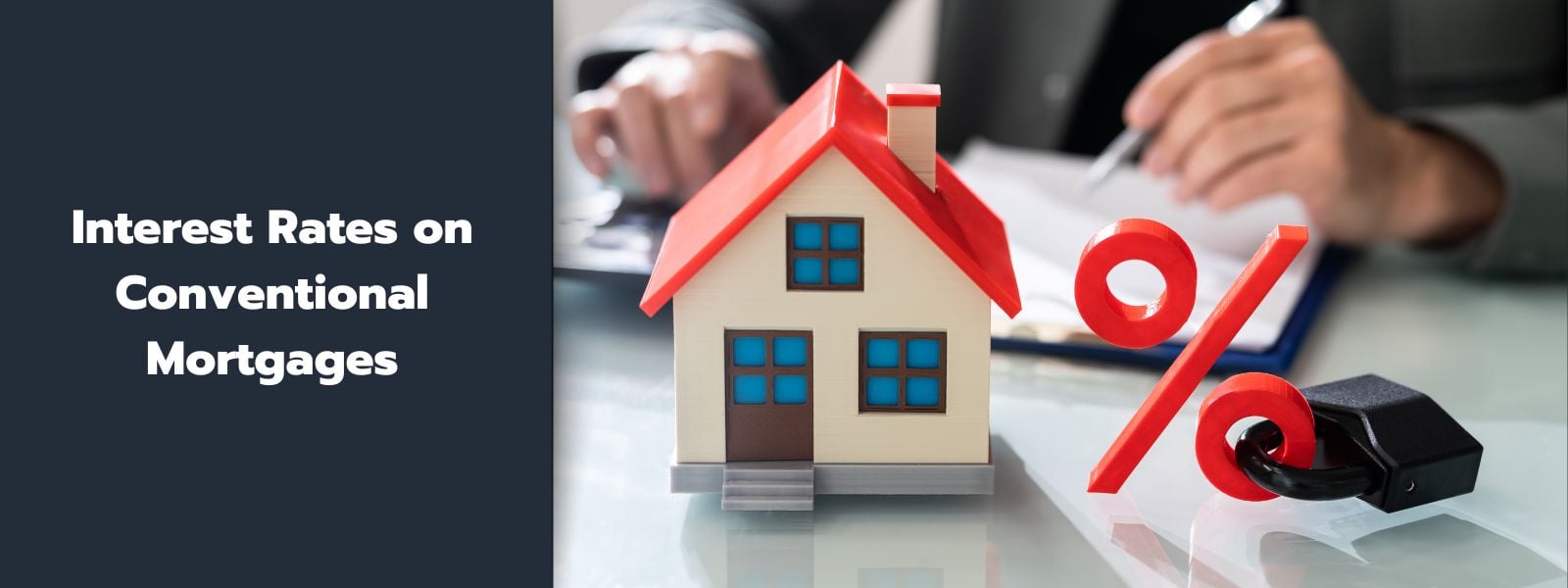
Interest Rates on Conventional Mortgages
Conventional loans typically have higher interest rates compared to government-backed mortgages like FHA loans. However, over the long term, FHA loans may end up being equally expensive because they often require borrowers to pay mortgage insurance premiums.
Several factors determine the interest rate for a conventional mortgage. These factors include the loan’s terms, such as its length, size, and whether the interest rate is fixed or adjustable. Additionally, current economic and financial market conditions play a role in setting interest rates.
Mortgage lenders consider their expectations for future inflation and the supply and demand for mortgage-backed securities when determining rates. If you use a mortgage calculator, you can see how different rates would impact your monthly payment.

Is a Conventional Mortgage Right for Me?
If you’re looking for a loan that’s easy to qualify for, FHA loans may be your best choice when buying a house. Alternatively, if you meet the requirements for a special loan program like VA or USDA loans, these would be the smartest options. These programs don’t require a down payment and offer low interest rates and favorable terms.
On the other hand, if you are highly qualified, conventional loans offer several advantages. Unlike government-backed loans, you won’t have to pay any specific fees associated with the loan program when you take out a conventional mortgage.
Even if you don’t have 20% saved for a down payment, your loan servicer will automatically cancel your PMI (Private Mortgage Insurance) once the Loan-to-Value (LTV) ratio reaches 78%.
Whichever option you choose, it’s important to shop around for your loan. Rates and terms can vary significantly depending on the lender you choose.
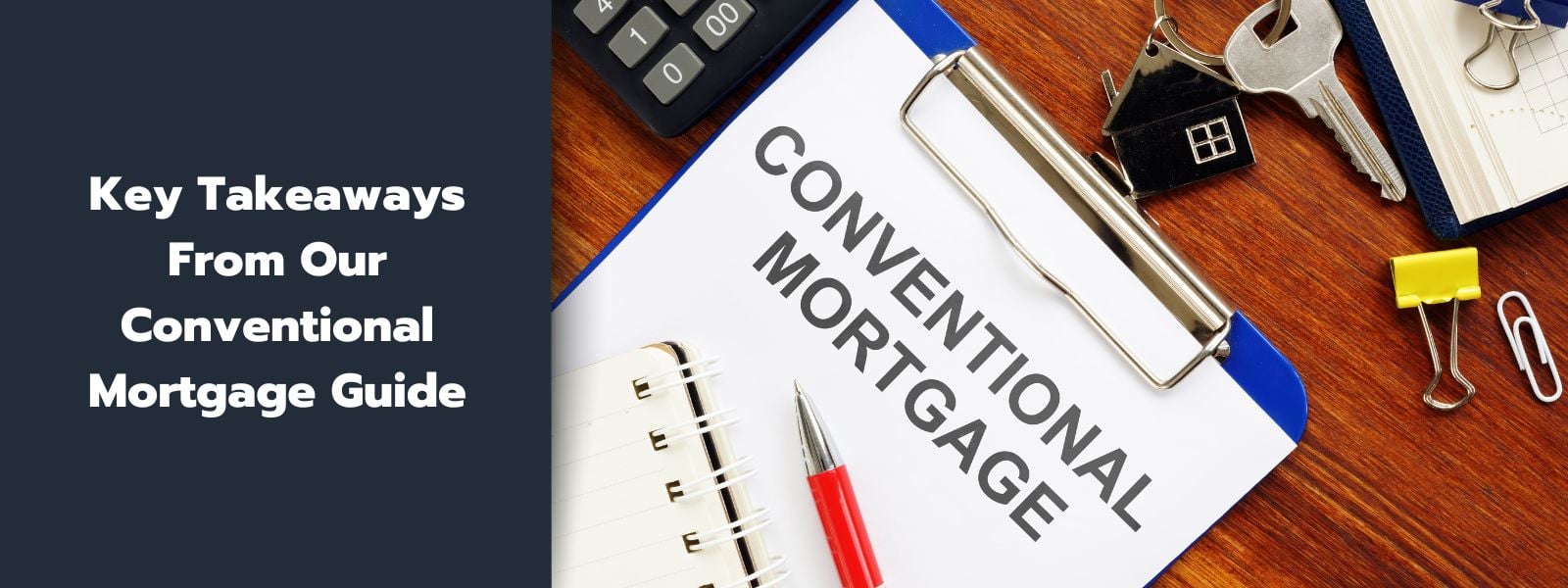
Key Takeaways From Our Conventional Mortgage Guide
Conventional loans generally offer lower costs than other loan types.
If you meet credit score requirements and want a down payment of as low as 3%, a conventional mortgage might be the best solution for you.
It’s important to find a real estate agent that you can trust and rely on when buying a home.
Helen Painter Group Realtors is here to offer our expertise and local knowledge.
A long-standing and trusted real estate agency in Fort Worth, TX, we’ve been serving buyers and sellers since 1958.
With over six decades of success behind us, you’ll surely have peace of mind knowing your best interests are being represented each step toward buying or selling a home.
To learn more or speak with an agent, feel free to give us a call at (817) 923-7321 or contact us.

